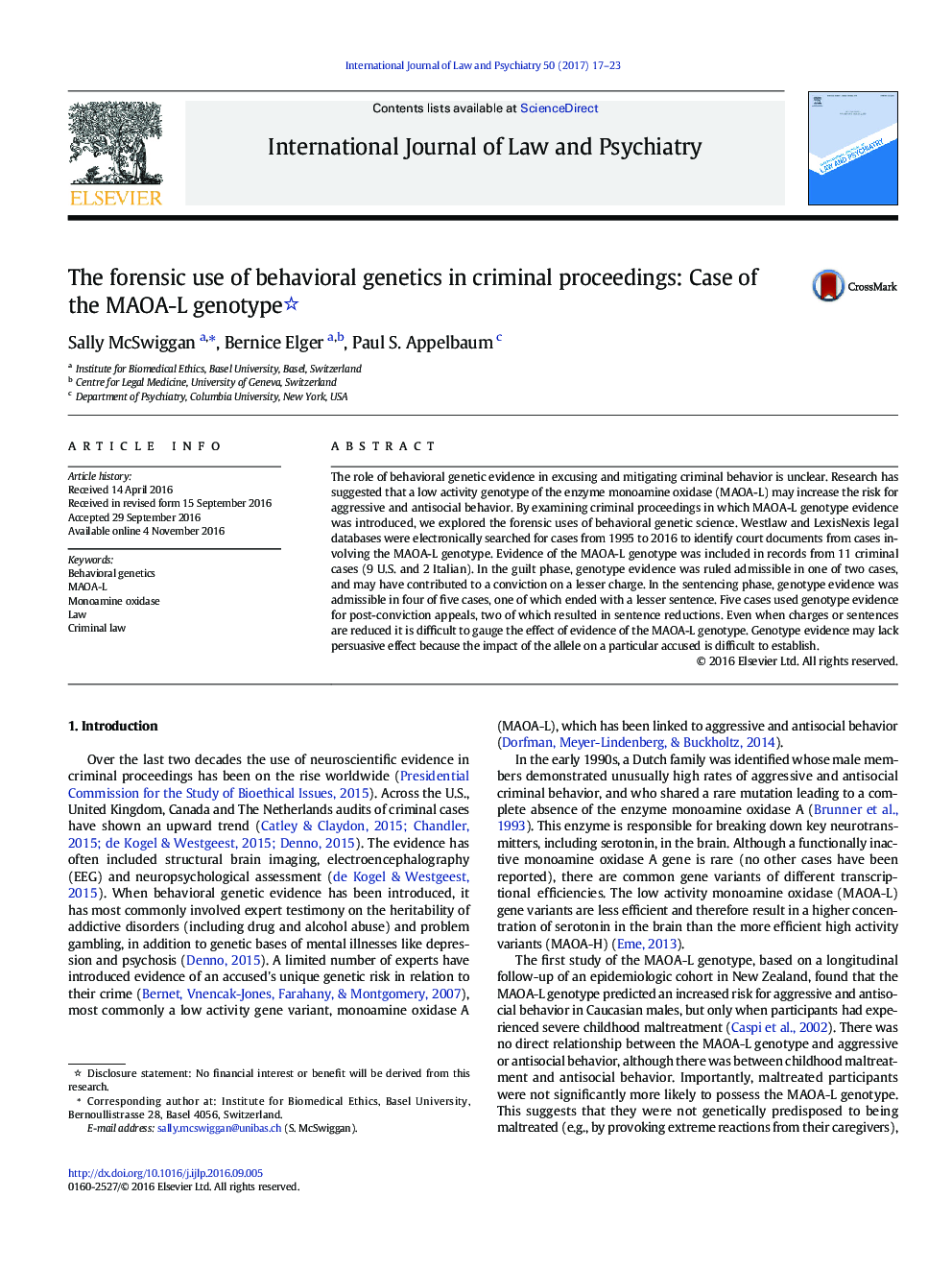| کد مقاله | کد نشریه | سال انتشار | مقاله انگلیسی | نسخه تمام متن |
|---|---|---|---|---|
| 4760501 | 1422271 | 2017 | 7 صفحه PDF | دانلود رایگان |

The role of behavioral genetic evidence in excusing and mitigating criminal behavior is unclear. Research has suggested that a low activity genotype of the enzyme monoamine oxidase (MAOA-L) may increase the risk for aggressive and antisocial behavior. By examining criminal proceedings in which MAOA-L genotype evidence was introduced, we explored the forensic uses of behavioral genetic science. Westlaw and LexisNexis legal databases were electronically searched for cases from 1995 to 2016 to identify court documents from cases involving the MAOA-L genotype. Evidence of the MAOA-L genotype was included in records from 11 criminal cases (9 U.S. and 2 Italian). In the guilt phase, genotype evidence was ruled admissible in one of two cases, and may have contributed to a conviction on a lesser charge. In the sentencing phase, genotype evidence was admissible in four of five cases, one of which ended with a lesser sentence. Five cases used genotype evidence for post-conviction appeals, two of which resulted in sentence reductions. Even when charges or sentences are reduced it is difficult to gauge the effect of evidence of the MAOA-L genotype. Genotype evidence may lack persuasive effect because the impact of the allele on a particular accused is difficult to establish.
Journal: International Journal of Law and Psychiatry - Volume 50, JanuaryâFebruary 2017, Pages 17-23